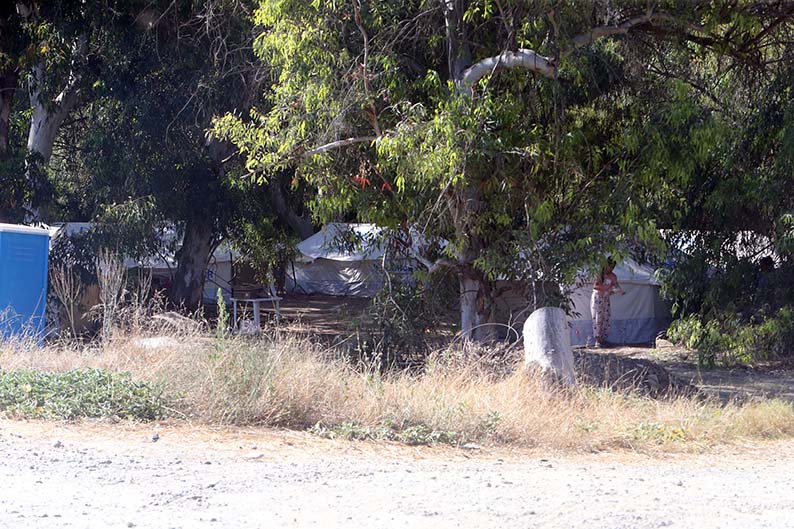Cyprus does not accept lectures from anyone on how to manage the issue of migrants, President Nikos Christodoulides said on Friday, as the UN peacekeeping force (Unficyp) and the UNHCR warned of the difficult conditions 31 migrants are facing in the buffer zone.
The president, who was arriving at the presentation of the Cyprus Olympic Team tin Nicosia, was asked whether migrants that are stranded in the buffer zone were deliberately allowed to enter.
He replied that the Republic of Cyprus has informed both the United Nations and the United Nations High Commissioner for Refugees (UNHCR) of its readiness to assist in any humanitarian issues in relation to these individuals.
Nonetheless, he stressed Cyprus does not accept lectures on the management of the issue of migration from anyone.
Those who think that with public statements they put pressure on Cyprus will not achieve anything, he underlined. Such problems are addressed through cooperation and not through public interventions, he noted.
“We have proven many times our sensitivity to this specific issue, but also how we manage it,” Christodoulides said, adding that it is easy for those who are not in Cyprus to make statements on the matter.
The UNHCR office in Cyprus is based in Nicosia.
He specified that under no circumstances would a new route for irregular migrants be allowed to be created and it is a challenge that the government is ready to address, he went on to say.
The route per se is not necessarily new, as hundreds of migrants have crossed through the buffer zone to seek asylum.
On Thursday, Unficyp said it was raising its concerns with the government of Cyprus over the “growing humanitarian situation” they are facing inside the buffer zone where over 30 asylum seekers have set up camps, one near Nicosia and one near Akaki.
Its statement came a day after the Unhcr said it was “alarmed” for the safety of the migrants. It specified Cyprus’ government was denying them the procedures to apply for asylum.
Despite being provided with food, water, clothing, and basic facilities by Unficyp with the Unhcr’s support, the international organisation said the people in the buffer zone were living in precarious conditions in tents exposed to extreme temperatures exceeding 40C in recent days.






Click here to change your cookie preferences